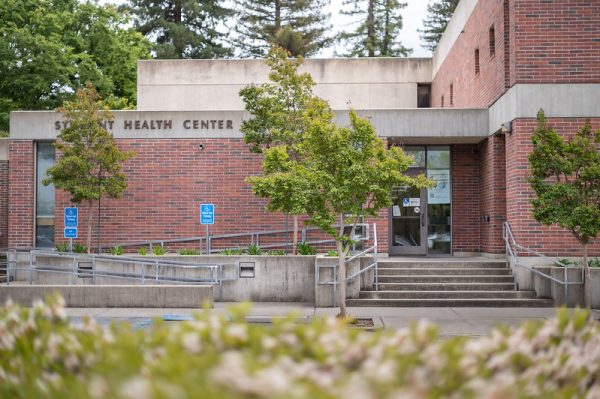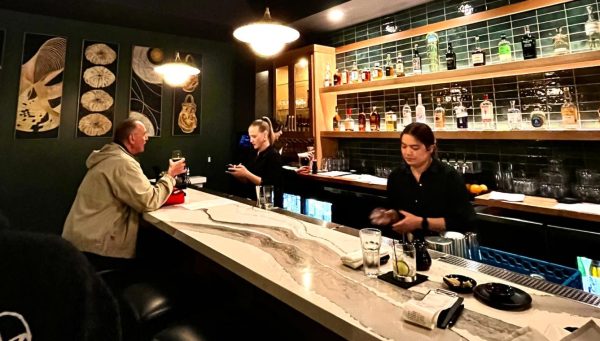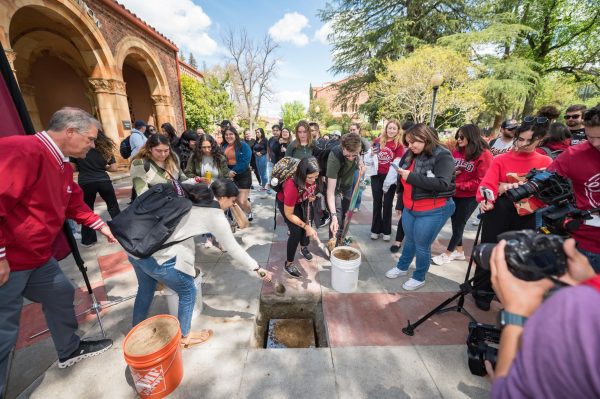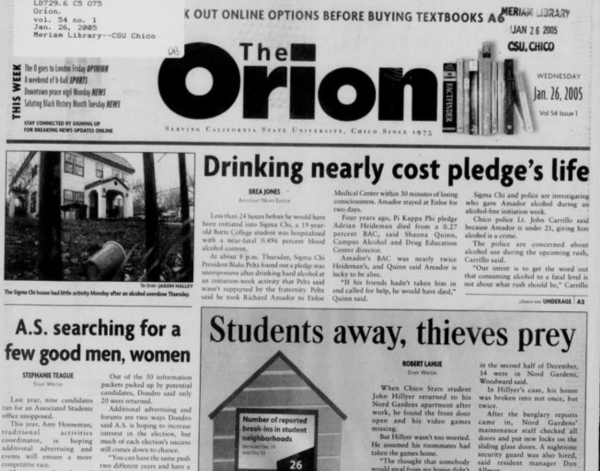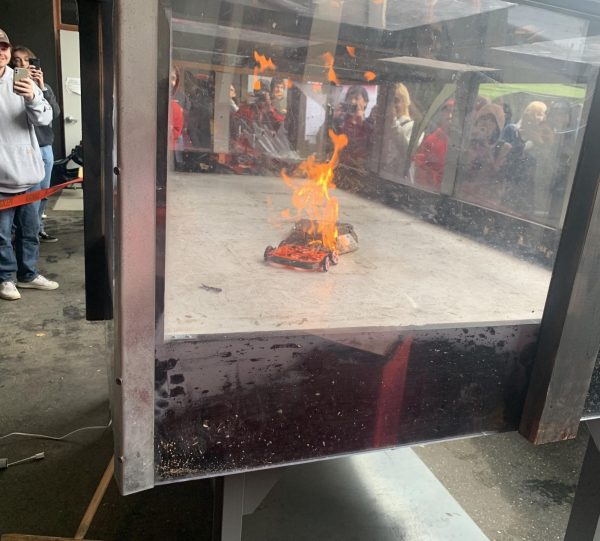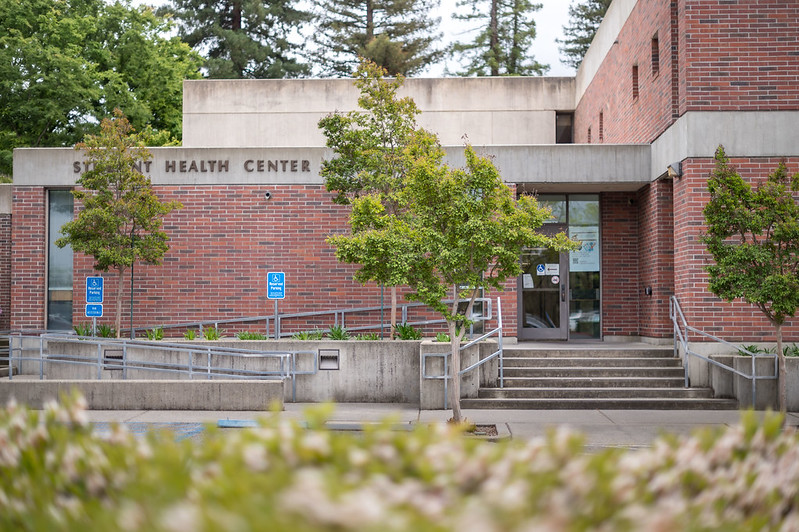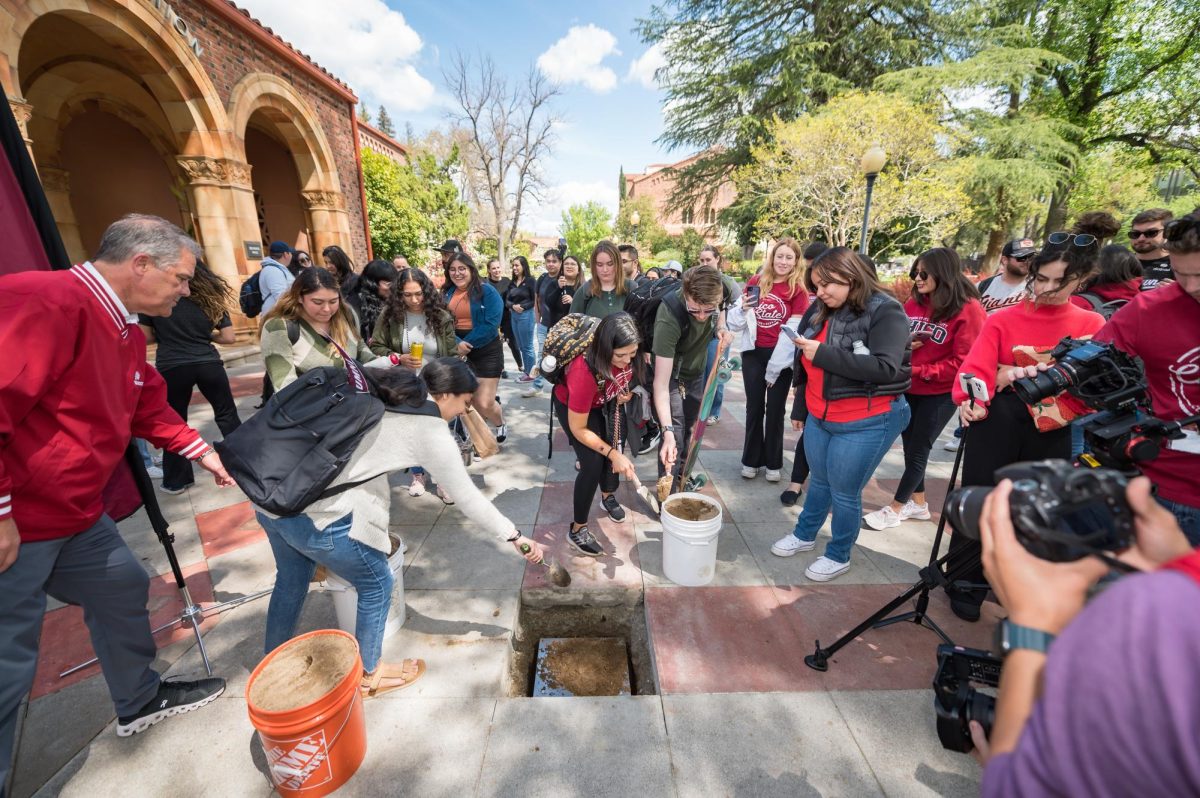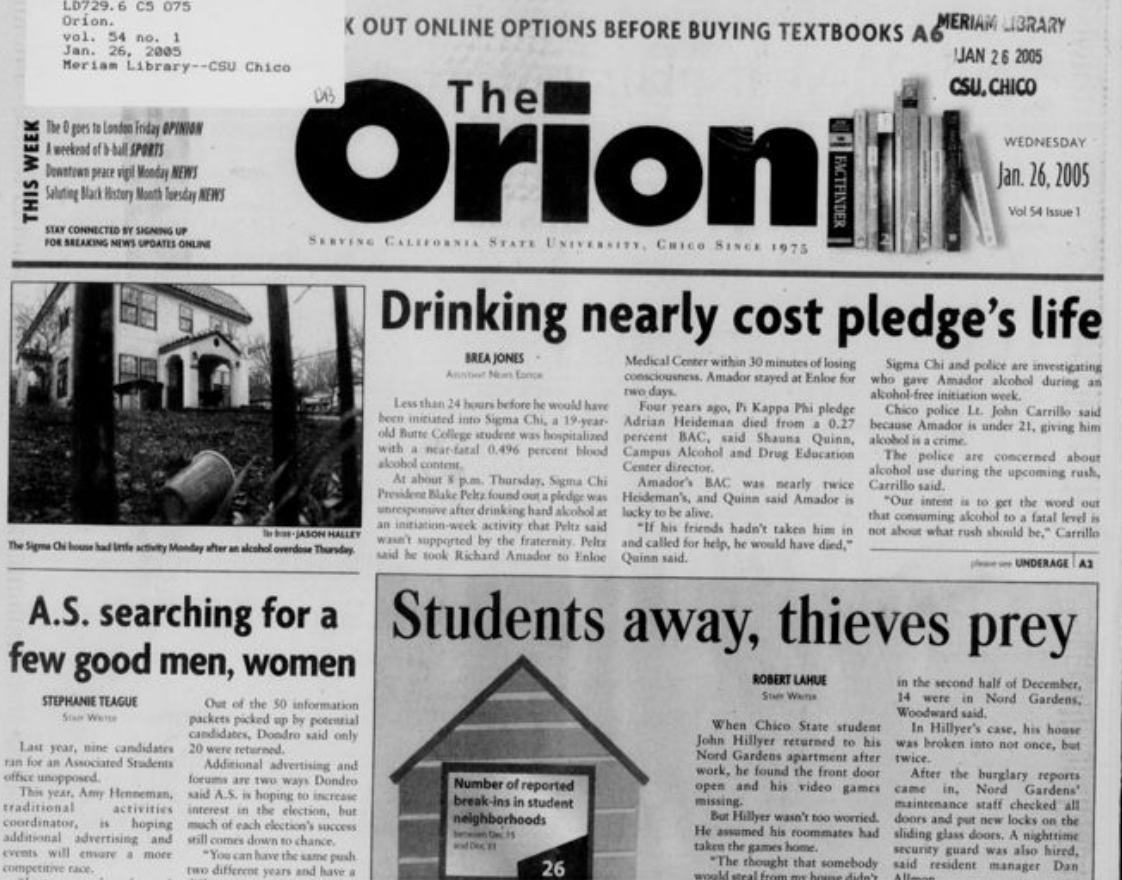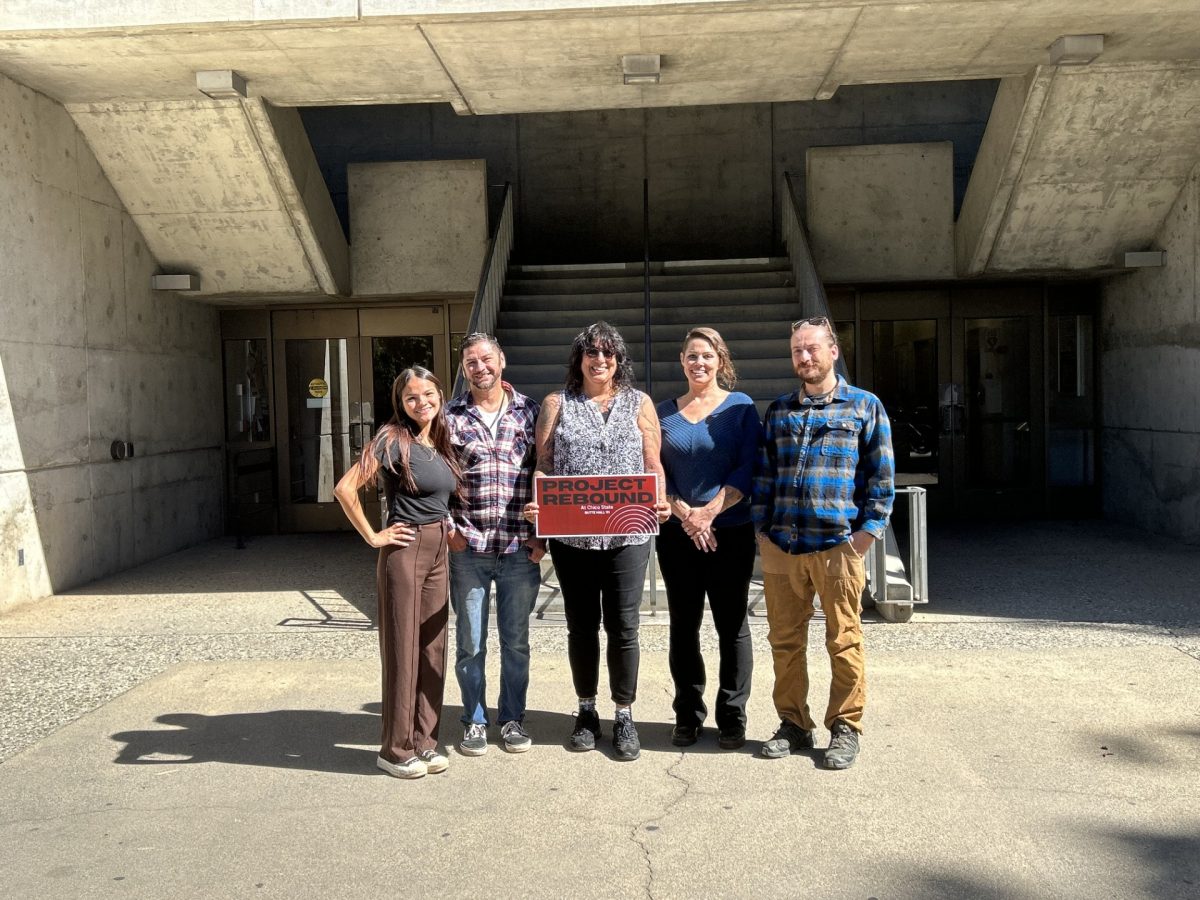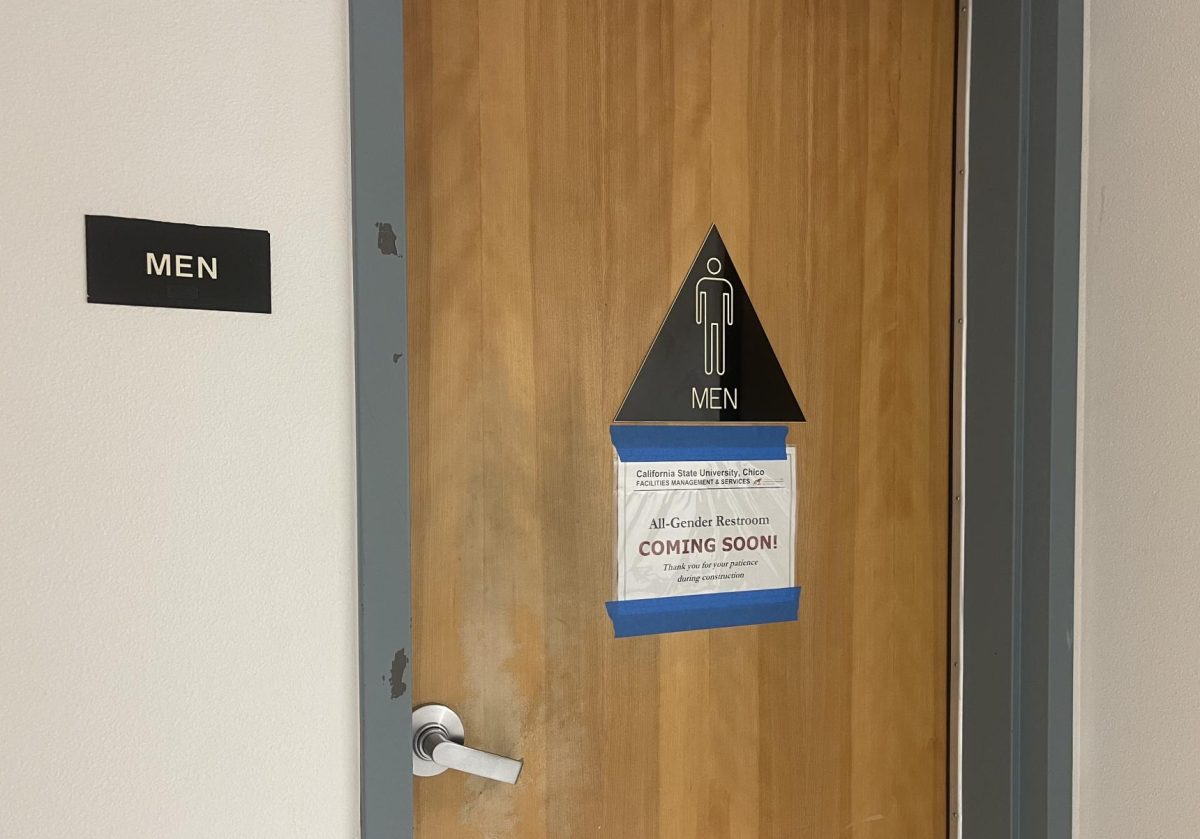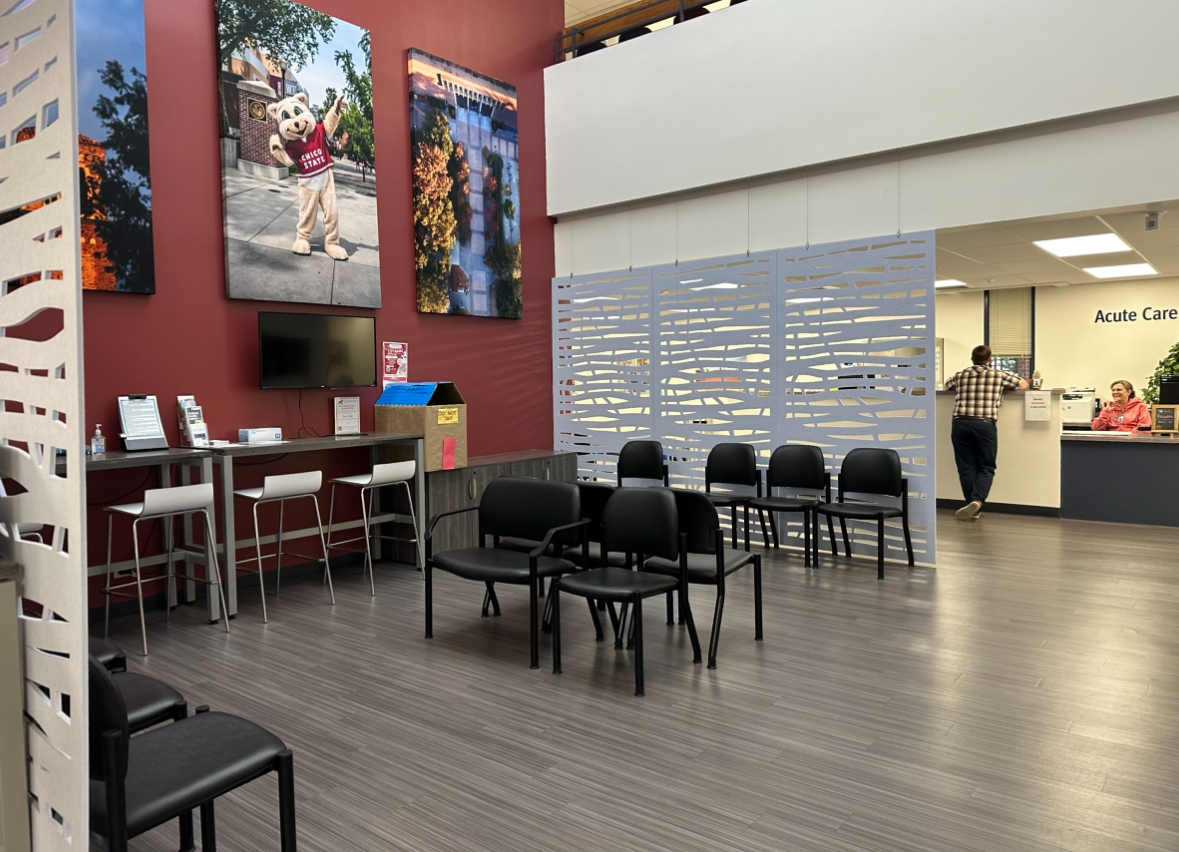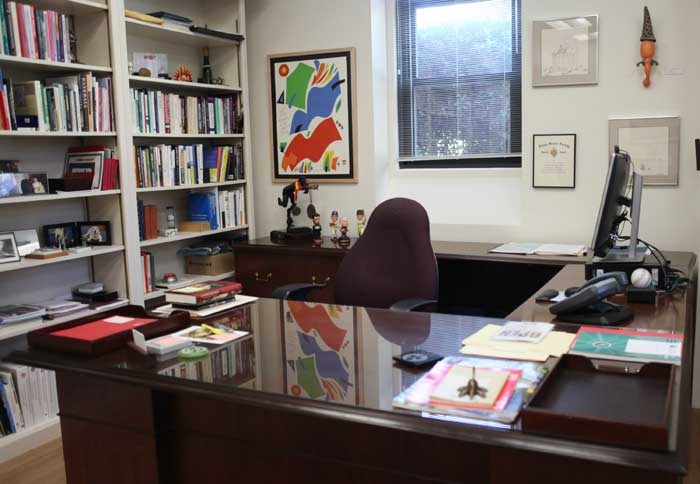
Since President Paul Zingg announced his plans to retire at the end of the academic year, the CSU Board of Trustees and Chico State administration have constructed an official committee for the selection of the president and a timeline for the search process.
Campus constituents and the Board of Education are urging the community to attend an open forum that will be held in Laxson Auditorium on Nov. 10, according to a press release.
The forum will initialize the selection process of President Zingg’s successor and is an opportunity for the public to come together and voice the desired traits of a president to the search committee.
However, some members of the campus community do not think it is fair that it will be the only time the public will be directly involved in the search process, as voiced by CSU Chancellor Tim White at Sonoma State’s open forum last month.
In 2011, the board followed a national trend in favor of closed presidential searches and adopted a new policy for the selection of presidents which states that a confidential search is the best way to attract a strong pool of candidates for the position.
Many qualified candidates are already presidents at other universities and having a search process open to the public can compromise their reputations at the current campuses, said Laurie Weidner, Vice President of CSU Chancellor public affairs.
“If they’re not chosen, that can cause long-term instability in that campus and also cause doubt in the minds of their own local board on whether they will be a stable leader,” Weidner said.
“I think that’s bullshit,” said Charles Turner, chair of the California Faculty Association.
“If somebody’s worried that it’s going to tarnish their reputation that they’re a finalist for the job at Chico State, then that tells us a lot about whether we want that person to be our president,” Turner said.
Students have also shared their frustrations with the open forum being the extent of their involvement in the search despite their money widely contributing to its funds.
“We’re paying for tuition and doing all of these things and I think it should be open to the public,” said Kim Celis, first-year pre-nursing major.
The campus’ biggest concern is that the absence of the public in this process goes against the public institution model that shows transparency in everything else from the president’s emails to the search process for any other executive officer.
“It feels a little elitist that the top level— a sort of aristocracy of executives— are allowed this sort of secrecy and protection but others aren’t,” said Paula Selvester, statewide academic senator and faculty representative for the search’s advisory committee.
Faculty believe that if they are going to work for a president and give input on what they want to see in that person, they want to meet the candidates and engage in a transparent process of selection, Selvester said.

Annette Heileson, chair of staff council, understands the Chancellor’s rationale but still does not like the idea of candidates keeping secrets.
“It would be nice to know what we’re getting before we get it,” she said.
In response to criticisms from the campus, Weidner said the involvement of the search’s advisory committee in the process proves the selection policy is a shared governance model.
According to policy, the advisory committee is composed of campus representatives from various central groups within the community, such as students and faculty. These representatives are selected either by group leaders or chosen through an organized election among its members.
“They’re presenting the illusion of choice,” said Arthur Sanchez, psychology professor and member of the 2004 president search’s advisory committee.
He related the anticipated search to its predecessor that decisively selected Zingg.
The committee chose and ranked the three finalists, but the Chancellor took it as a light suggestion and chose its third choice as Chico State’s next longstanding president, Sanchez said.
“It became very clear that each of the candidates knew each other and the Chancellor knew them,” he said.
Sanchez’s account of what unfolded throughout the 2004 search is a suspicion Joe Crotts, chair of Meriam Library, said people are likely to have when confidentiality is in the mix.
“When people don’t know exactly what’s going on, it’s a lot easier to slip things in if there were favorites somewhere or people who were favored for reasons beyond pure academic reason,” Crotts said.
Members of Chico State are not alone in their disagreement with the confidential policy that was enforced as Chancellor White came into office.
12 out of the 23 campuses in the CSU system have recently passed academic senate resolutions calling for the board to revert to open searches that include campus visits by final candidates.
However, a total of 21 CSU campuses are interested in passing resolutions, Selvester said.
Regardless of the collective efforts of most CSUs to takedown the rather new policy, Weidner says the Chancellor’s office has not had any concerns about confidential searches.
“Our campus communities understand the role of this process is to choose the best pool of candidates who are highly qualified,” Weidner said. “After learning in the open forum why a confidential search is used, there has been full support.”
One thing both parties can agree on is the importance of student involvement, whether it translates as offering input at the open forum or demonstrating anger with the board sparing all details of the selection process.
“The more students make their collective voice known, they can influence— in ways they can’t even imagine— the way the university goes,” Selvester said.
Anyone is welcome to attend the open forum on Nov. 10 from 1 p.m. to 3 p.m. in Laxson Auditorium. Those who cannot attend can view a live web stream.
Cheyanne Burens can be reached at [email protected] or @cheyanne_burens on Twitter.
